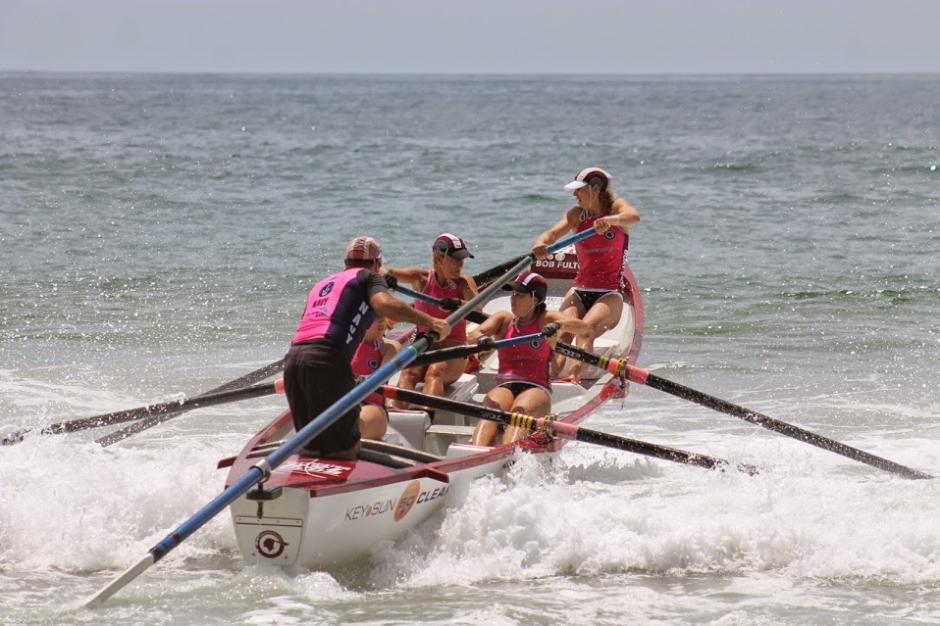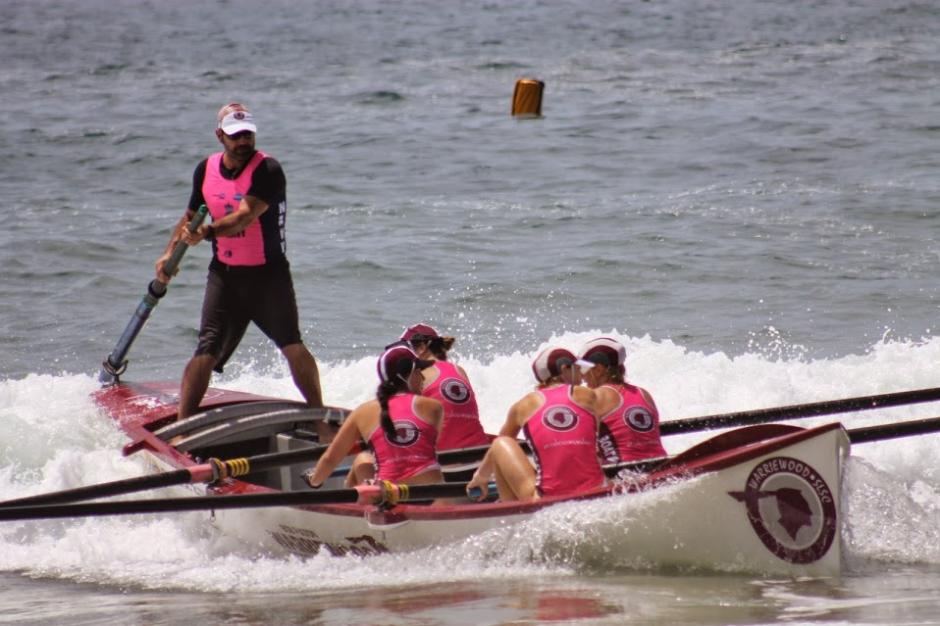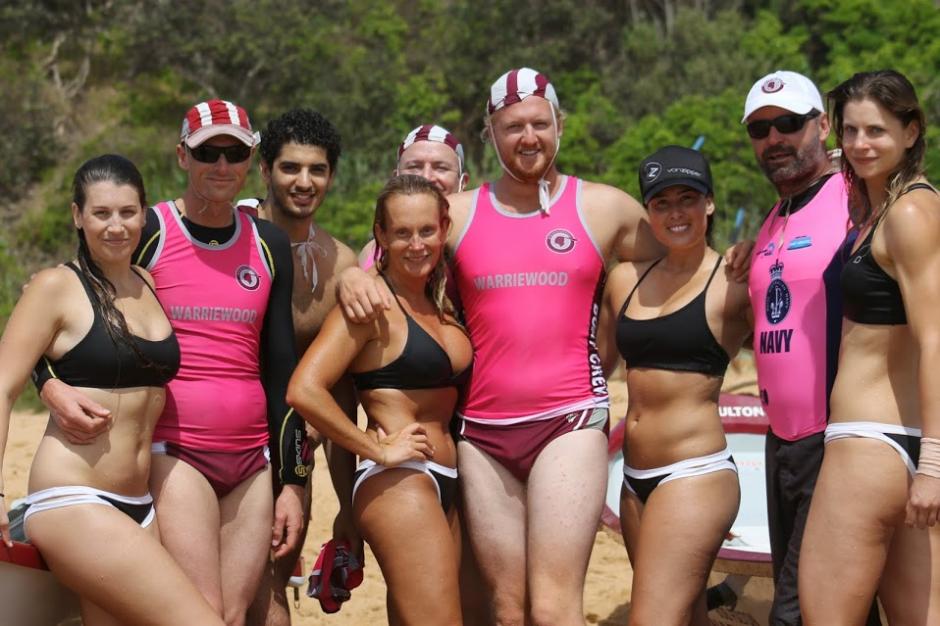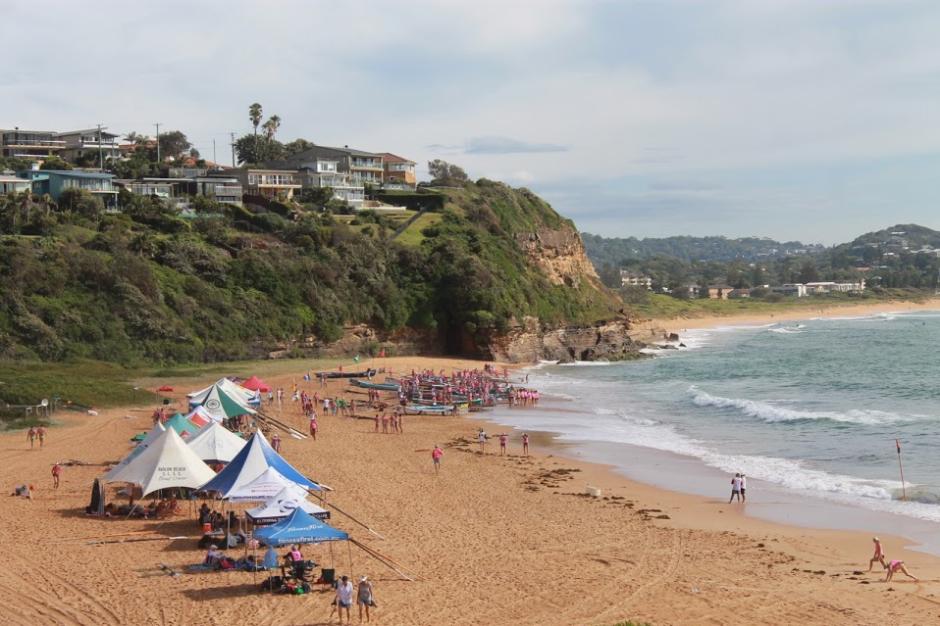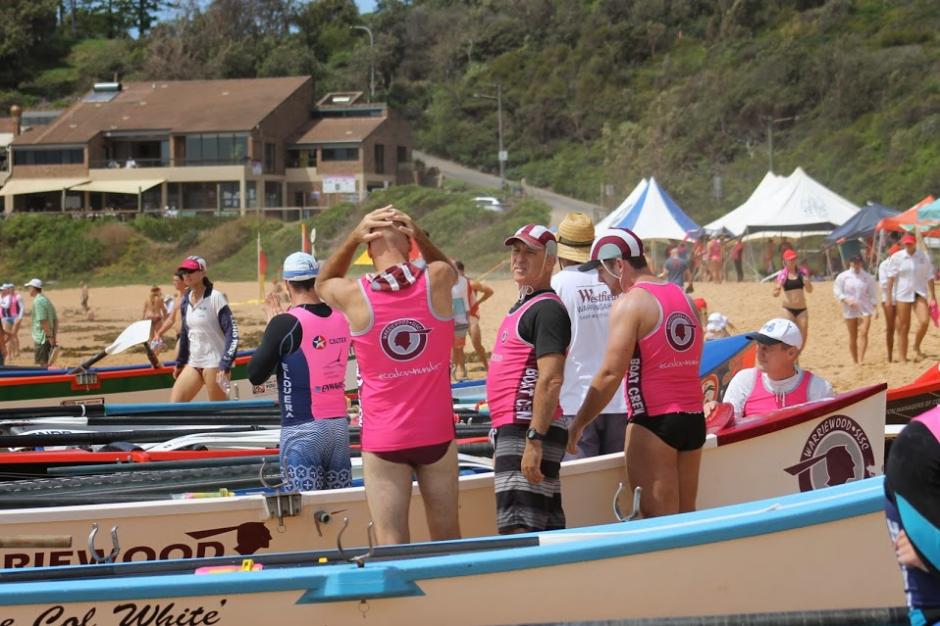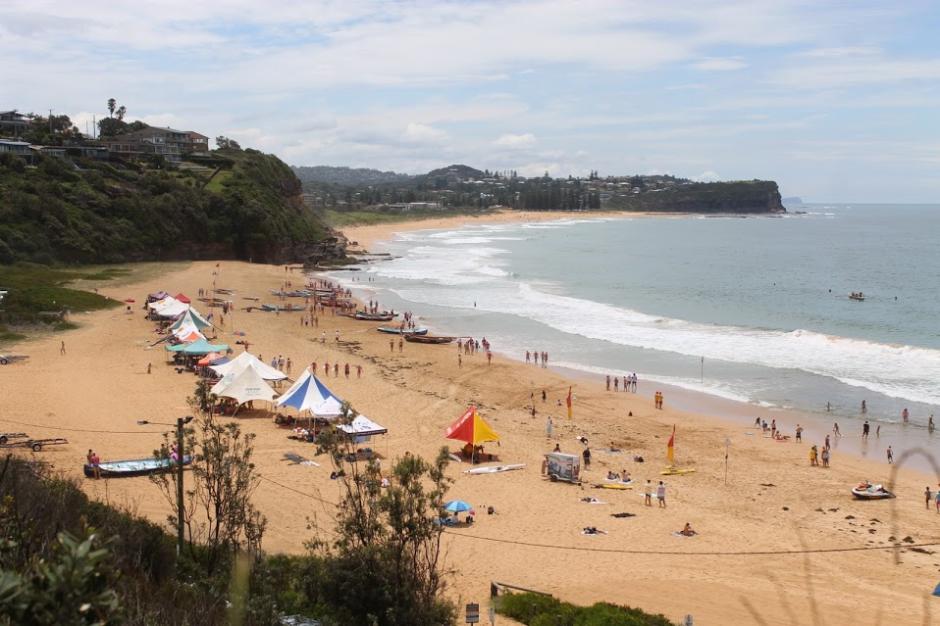March 22 - 28, 2015: Issue 207
Matthew Sheridan
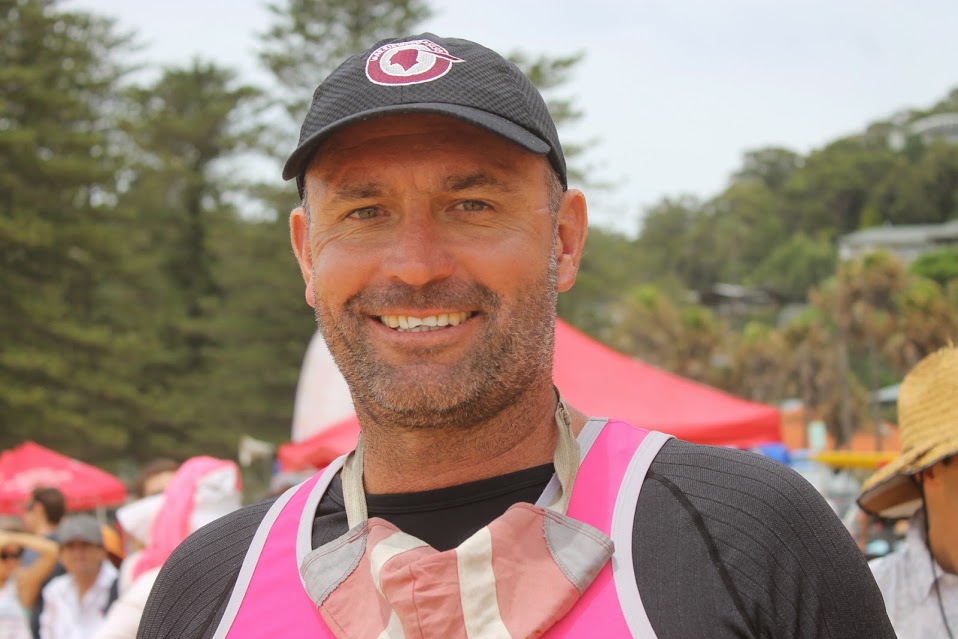
Matthew Sheridan
Warriewood SLSC was established in 1950 and opened in 1951. Since then it has attracted the cream of saltwater people and kept a strong focus on family and community. Spending any time around the clubhouse tucked into the southern corner of Warriewood, or on the beach, one family is looking back at you. There is something essentially young and vibrant about Warriewood SLSC, from Life Members through to Nippers and every mum and dad on hand, there's lots of action, lots of laughter and a quality you can only term 'laid back' - this is a very relaxed and tight-knit group of close to a thousand people.
All of these people do what they do so well people may forget all our beaches surf life savers are volunteers, whether on the sand or on the radio, part of first aid training or in the office, being vigilant, serving others attracts the best people and brings out the best in them.
Matt Sheridan, ‘Sherro’, the current President of Warriewood SLSC has spent his whole life in, on and around the water – he knows this place, it’s in his blood. This beautiful little beach, tucked away at the southern end of Pittwater, is not the first small beach this man has frequented, as Bungan has always been and is still a favourite.
Mr. Sheridan has in him an ethos of pushing himself while also being a gentle man, calmly and quietly getting on with training boat crews, getting on with his work and lifting his club up. Warriewood has always been strong in the water and boat crews with legends such as Allan Collins, Bob Fulton and Robert Walsh sharing their knowledge and building great attitudes in those they coached while building great teams and team spirit.
Matt Sheridan is cut from this same cloth; he builds as a career, builds community spirit as President at Warriewood, builds men and women into boat crews through training and is close to starting his 10th year as President at Warriewood which was preceded by a Club Captain role. To him, like so many, the results in surf sports are great, a marker of improvement in fitness and individuals skills, but it is being great as one team, as one club, where the success each surf club seeks resides.
A family man, a straight talker and team player who excels in bringing and keeping a team together, this week a special individual shares a small insight into a few Pittwater treasures.
When and where were you born?
1969; I was born in Sydney and have been on the beaches all my life. I lived in Elanora and then Newport and now I’m in Mona Vale. I grew up sailing and surfing was my big love and that’s how I got into surf life saving.
I spent a lot of time surfing at Bungan and was roped in up there into doing the Bronze Medallion as a teenager with friends I surfed with.
The sailing occurred mostly through Pittwater High School where I represented the school in the old Kalori days.
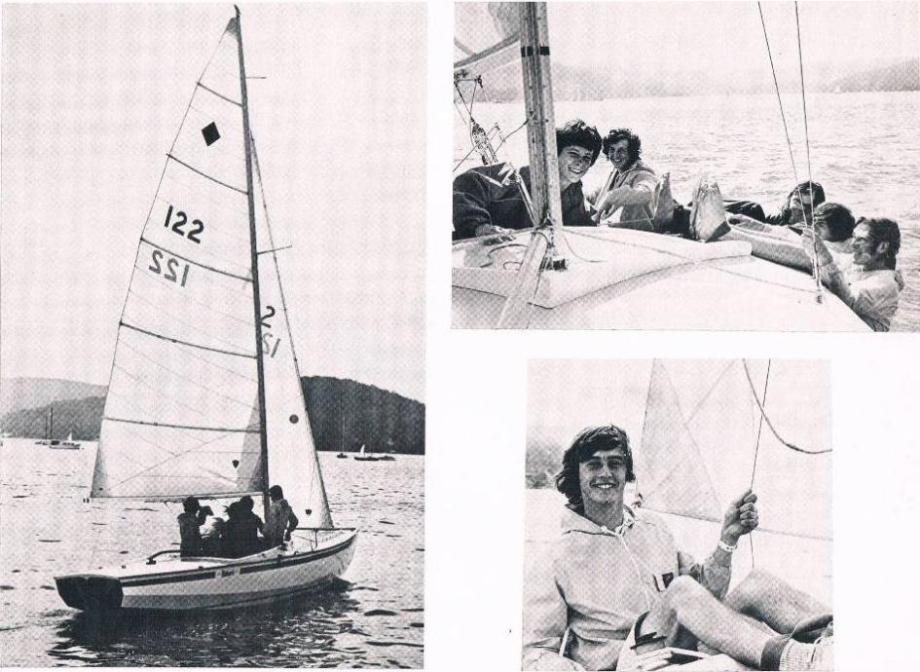
From the 1974 Pittwater High School Kalori yearbook - the Kalori - courtesy Alan Jones and Wal Wardle.
Which is your favourite wave?
Bungan still – I go there surfing with my son a lot nowadays.
When did you leave school?
I left Pittwater in Year 10 to do a Carpentry Apprenticeship. My first rowing sweep offered me an apprenticeship and as I was spending most of my time surfing it seemed a waste of time to spend another two years going to High School so I left and got stuck into t hat. I did my Carpentry apprenticeship and then did what was called the Clerk of Works then so I could go out on my own.
What’s the best thing about working for yourself?
Definitely the flexibility as it has allowed me to do what I do with being part of a rowing crew and Warriewood SLSC’s Surf Boat crews and being involved with the surf club. Obviously there is a time demand involved in doing this so it’s a bit difficult if you work for someone to have a meeting with a sponsor or to duck off to training at four.
I’ve been working for the same company for 15 years as a Senior Project Manager and had it set in my head that if I didn’t have a crack at it in my 40’s I’d get to my 50’s and regret it. Getting the Clerk of Works was hard work but worth it – for this I had to go to Tech three nights a week from 5 until 9 o’clock at night for three years. It was pretty tough for an 18, 19 and 20 year old; all your mates are out at the pub and having fun, you have to push yourself to complete it but it’s worth it once you do.
You’re a dad as well – how many children do you have?
I have three children; a 16 year old, 12 year old and 1 year old.
Are they into surf life saving too – probably not the 1 year old, but the others?
Yes he is, whether he likes it or not, he’s there already (laughs). The other two have been part of it for a while too - both have been through Nippers. My son is right into surfing, he loves the beach.
I met my second wife, an English lady, at a work junket in Las Vegas, we just bumped into each other and got on well. We corresponded by email for quite a while and then when she decided to visit Australia we caught up. I then went to visit her where she was living in Spain and we decided we wanted to give a relationship a go. She moved out to Australia about 10 years ago and we married in Spain two years ago and have now had a little sprog.
How old were you when you became part of surf life saving?
I was 15 when I started. I was at Bungan for about 8 years and then went and rowed at Collaroy for quite a few years. I went travelling overseas for a few years and after I came back I rejoined Collaroy. I was going through having a young family at this stage and just before my daughter was born a couple of mates said ‘let’s get back into the rowing’. We joined up at Warriewood to be part of rebuilding the rowing section of that club.
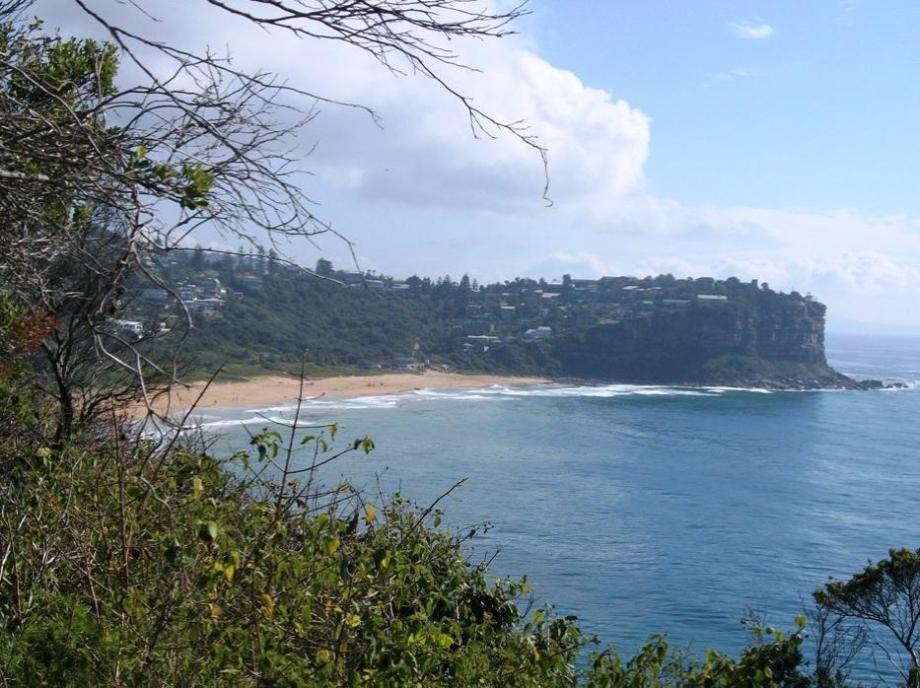
Bungan Beach
How did you get into rowing to begin with?
When we joined Bungan, when they were very strong and won three Australian Championships in a row, they wanted to get crews together to build the club up more. Pittwater used to do school surfing at Bungan and the members honed in on us and after they put a whole bunch of us through our Bronze we all hung around and got into the rowing. I was Club Captain down there for a few years. We’d be down there every weekend surfing and take the boats out then too.
What attracts you to the surf boats?
It’s one of the best team sports I’ve ever done. Every crew I’ve been in or coached are all lifelong mates from when we were youngsters – these are all still my best mates and we still row together. So to have been rowing with mates for 20 years or more and having that culture of being out in the surf, the challenge of it, and the fitness, I love the fitness, it’s a great sport to have as part of your life. We didn’t get home before 7 in the evening after the Branch championships and were on the sand at 6am that day. So, you have to be fit.
Warriewood has excelled this year in the Surf Boat Carnivals though – what would you put that down to?
.jpg?timestamp=1426941034535) As in any club it takes time to build on what you start out with. My girls crew only came together last Season (2013/14).There’s two girls in that crew that hadn’t rowed before with two girls that had. Last year we treated it moire as a bonding period and this year set a program for them; if you want to be serious this is what you’re going to have to do, which is what they wanted to do and what we’ve done. Obviously now they’re seeing the results of this.
As in any club it takes time to build on what you start out with. My girls crew only came together last Season (2013/14).There’s two girls in that crew that hadn’t rowed before with two girls that had. Last year we treated it moire as a bonding period and this year set a program for them; if you want to be serious this is what you’re going to have to do, which is what they wanted to do and what we’ve done. Obviously now they’re seeing the results of this.
We’ve been training five days a week this season. I’ve got a couple of crews that I’m training, Shaun’s (Taylor) got a couple, Russell’s (Lamb) got a couple, so juggling that round and including working as well has meant a lot of commitment there from everyone. The girls, my crew, trains at 5 o’clock on Thursday mornings at Clontarf – so they’re up at quarter past four in the morning to be at Clontarf for training, so that’s a bit commitment from them too.
You are the current President of Warriewood SLSC – when did you take on that role?
This is my ninth year of being President of Warriewood. I was Club Captain at the time and the President of then announced he was stepping down. No one was putting up their hand to take on the role and as I was Club Captain I went ‘ok’ – and took it on as a bit of a challenge. The first few years were a big learning curve as there’s a difference between being Club Captain and President. As President you have to keep things current and put new things in place, you’re creating an atmosphere so that everyone will get involved. That was difficult initially and during the first few years I was doing everything because I thought it was my job to do this and thought the best way to do it was lead by example in a way. Then that encouraged other people who said ‘maybe Sherro shouldn’t be doing all of that, maybe we should lend a hand’ and it built up and is at a point now where it’s turned and almost runs itself as everyone takes on a role and excels at their part in the club running.
The systems we’ve created, and the culture we’ve built at Warriewood has made ours a very strong community focused club.
It’s a real family club; you have the younger members, a great mid ranks team and some outstanding Life Members.
Exactly. That is one of the parts of our club we’ve worked on – we pride ourselves on keeping it one team - there’s no junior club, there’s no divisions within the club. That was one of the things I was quite adamant about changing when I took on the role; I’ve been at clubs where there are divisions and sections and these can have a stigma about them. An example would be the boat section where other members say ‘all they do is row boats', they don’t contribute in any other way, they’re taking out of the surf club without putting anything back. So that’s something that we changed; all of the boat crews are involved in the rest of the club and we built up the boats section but kept it part of the club. By eliminating that sections set up we all socialise together, we all get the work done together and we’re all one the sand together – there is no ‘us and them’ in the club.
The clubhouse is a great example of that – it’s a pretty dynamic meeting room all year round for members, even outside of the season you have events going on such as people running yoga classes; why do that?
We did that because we have to rely on the clubhouse as one of our main sources for raising funds for equipment and maintaining the premises and running the club itself. This was a legacy from Peter, the previous President. He realised back then that the amount of administration that was required warranted employing a paid administrator. Her job is to do around 50% of the paperwork required for the club’s running, this takes the burden off the volunteers. The other 50% is to look after the hall hire where before we used to rely on the caretakers there which didn’t factor in that they are actually working people and if someone wants to come down and look at the hall within working hours it made it difficult to meet these requests. Now that works well.
We’ve also spent a fair bit of money over the last ten years renovating rooms in the club, so investing back into the club has been afforded through that income stream.
We redid all of our members area eight years ago. The main hall was redone three years ago which had brown brickwork and was a bit drab. We repainted and re-tiled it and took up all the old carpet and fixed the kitchen up to turn it into a much fresher space. We’ve also recently renewed all the bathrooms as well so they look great too.
How many members are at Warriewood SLSC now?
We have around 830 members now. This is comprised at about 400 from our Nippers, I think we’re about 4th or 5th in terms of Nippers numbers for the Northern Beaches. Our Seniors ranks, or patrolling members and life members and the parents too; we have the parents of Nippers as members and that keeps them involved too.
What hazards are patrolling members taught to look out for most at Warriewood Beach?
Most of our major rescue events where members are involved are at the blowhole, which is well documented. Most patrolling members who have been at Warriewood for any length have time have done a rescue at Warriewood blowhole, whether it’s a calm day and someone has jumped and hurt themselves or jumped and got caught in treacherous conditions. That has been the main cause of rescues. Being vigilant of this, as it is tucked behind the cliffs, is what all patrolling members learn.
We are pretty lucky as it’s a fairly calm beach and we don’t get that many surf incidents – rips can pop up everywhere, the southern end where the Elevator can drag people straight out is one monitored, but everybody knows that and uses that as part of their knowledge of the beach itself.
What is the best thing about surf life saving for you?
When I initially got involved it was about doing something with your mates, whether it’s surf life saving or playing rugby; I enjoy that camaraderie and having fun with your mates. Because you’re local you can go pretty much anywhere on the Northern Beaches and you know someone from being involved with community outlets like that.
I think that’s great, you always have a friend around the corner and you grow up together, it creates community. I look at it from the point of view of knowing that plenty of people know me, they know my kids, we all look out for each other; this is what is created or maintained by being part of these community groups.
This also helps our kids too, not just from gaining a sense of being part of a community but may open doors for them as their interest develops in other things – there is always it’s not what you know but who you know and with so many people having varied interests there’s always someone you can learn from or find out something from to help pursue your own interests, whether work based or learning or teaching.
Nowadays, from the surf club perspective, it is changing and getting a lot harder and a lot more demanding which is something I think we’ll all continue to work on; on what we’re doing and where we’re going and how we want that to be, to develop. We always have to be asking ‘are we going down the right path?’.
Surf Life Saving has become quite a large organisation and it needs to maintain that human aspect or personal touch for want of a better term to turn it simply into a business organisation moves away from what can be achieved. Spending millions of dollars on advertising to increase membership when we need that funding on the beach for equipment or handing bearing the cost of hiring lifesavers during weekdays to Council’s that are on the coast may be better spent by addressing these fundamentals – that would attract membership.
There is also a structure in place which seems to make more work for volunteers when people are employed in paid positions who could be doing this work themselves, and allow the volunteers to get on with their primary objectives, to be on patrol, to be vigilant and saving lives. The structure as it is at present seems a little top heavy for this to occur.
Hopefully how we progress and how we want to do this will continue to be discussed and those on the beach, as volunteers, will see these structures swing more to supporting their work.
You can’t go past the mateship, the positive aspect of surf life saving itself though. We just had a send off for Graham Carmichael, our Cadet Club Captain of a few years ago, and the spirit of how everyone came together on that day embodies what it’s about and reminds you that if you’re ever in trouble that there’s at least 200 or 300 people there who will drop everything and help, which is a great community spirit.
We need to keep a focus on this, on why we all joined to begin with; we like contributing to the community through serving as surf life savers but we also want to be there with our mates and enjoy it as well.
What are your favourite places in Pittwater and why?
There’s nothing better than the coastline along the whole of the Pittwater peninsula - I love going down and having a coffee on the beach and just enjoying being there, I don’t think you can beat the scenery here or what we’ve got. At the moment we’re spending a lot of time down at Bayview as it’s great for the one year old, a nice safe playground. If we’re not down there we’re at the beach surfing with the kids or doing things at the surf club, that’s like a second home.
What is your motto for life or a favourite phrase you try to live by?
I have a very strong life ethos as a couple of mates have passed away and didn’t get to do the things that they wanted to because they said ‘oh, I’ll get to that next year’.
So I follow ‘live life to the fullest and jam as much of everything into every day that you can’.
My wife keeps saying ‘you’ve go to stop, slow down’ as I’m up at five every morning and stop literally when I crawl into bed – with work, family, the surf life saving, every day is a million miles an hour; so ‘sleep when you’re dead’ applies too I guess.
